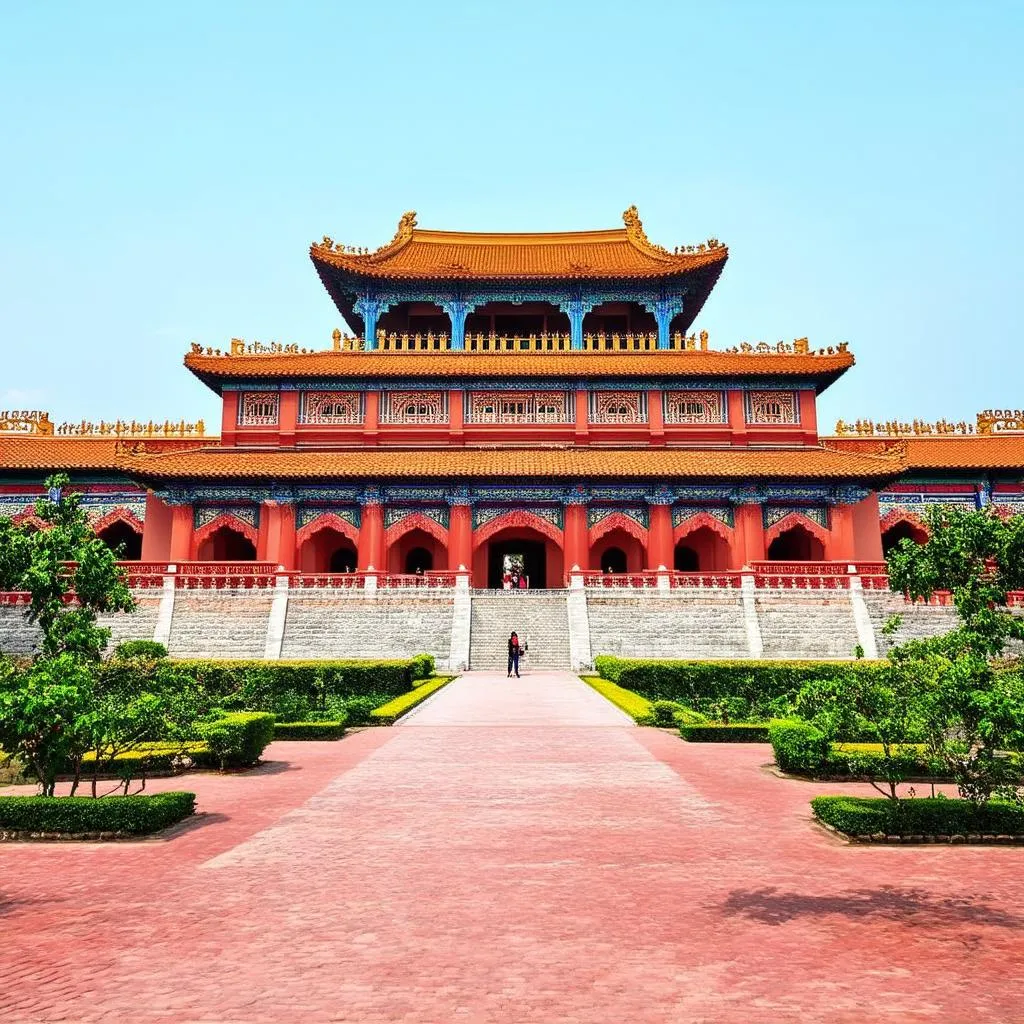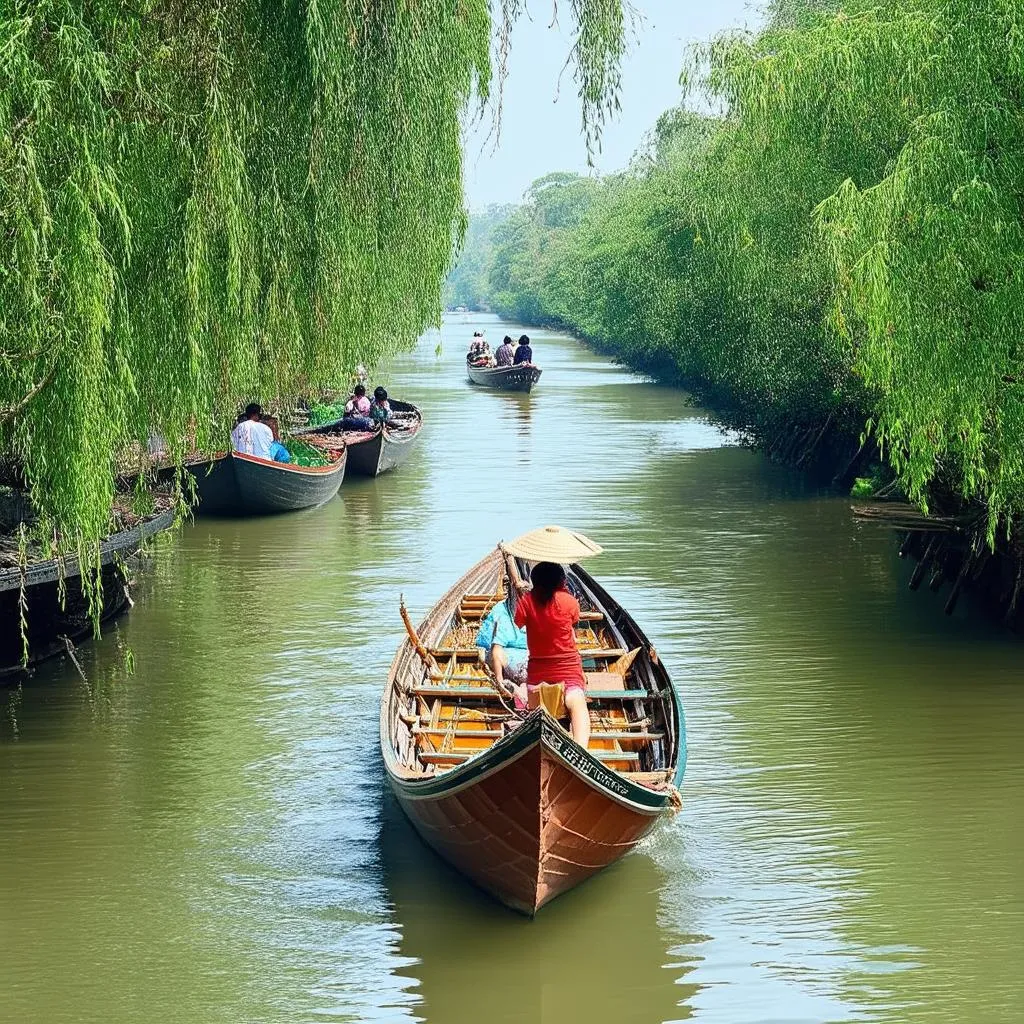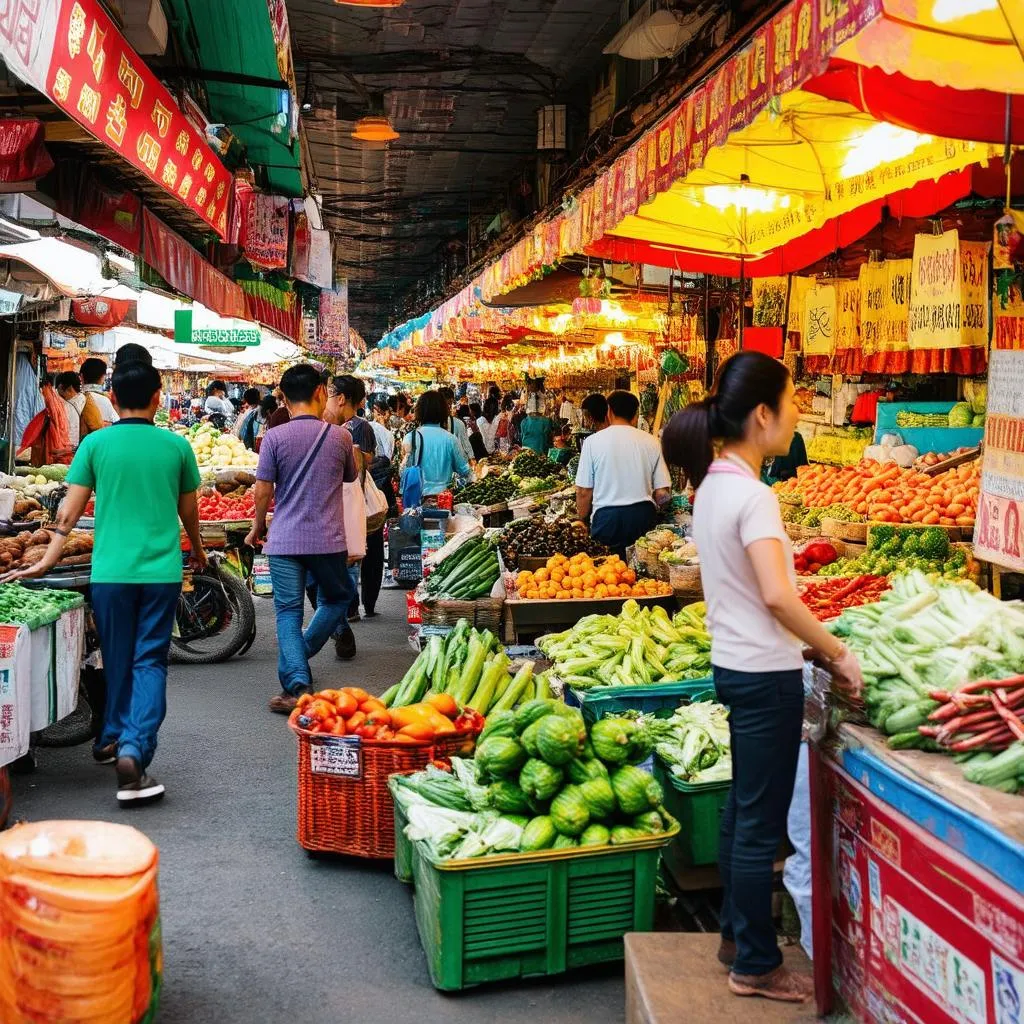Have you ever felt the urge to escape the hustle and bustle of everyday life and immerse yourself in a place rich with history, culture, and breathtaking natural beauty? If so, Hue, Vietnam’s former imperial capital, should be at the top of your travel list. Hue is like a whisper from the past, a place where time seems to slow down, allowing you to breathe in the serenity of the ancient city and feel the energy of emperors and their court.
The Enchanting Charm of Hue: A City Woven with Culture and History
Hue’s allure lies in its captivating blend of ancient grandeur and modern vibrancy. Here, you’ll find yourself walking through majestic citadels, gliding across tranquil waterways, and immersing yourself in a rich tapestry of culture and tradition. Whether you’re a history buff, a nature lover, or simply looking for a relaxing escape, Hue has something special to offer everyone.
Hue’s Architectural Gems: A Glimpse into the Past
Hue’s architectural treasures are the heart of its charm. The Imperial Citadel, a UNESCO World Heritage site, is a must-visit. Imagine walking through the massive Forbidden Purple City – the inner citadel where the emperors resided. The vibrant Flag Tower, the majestic Thai Hoa Palace, and the serene Nine Dynastic Urns are all testament to Hue’s imperial past.
 Imperial Citadel Hue
Imperial Citadel Hue
Discovering the Tranquility of Hue’s Waterways
Take a serene boat ride on the Perfume River, a scenic waterway that cuts through the heart of the city. The Thien Mu Pagoda, a graceful seven-story pagoda nestled on the riverbank, is a symbol of Hue’s spirituality. For a unique cultural experience, visit the Hue Royal Tombs, intricate complexes where the emperors and their consorts are laid to rest.
 Perfume River Hue
Perfume River Hue
Hue’s Culinary Delights: A Feast for the Senses
Hue is known for its exquisite cuisine, a delicate blend of flavors and traditions. Bun Bo Hue, a spicy beef noodle soup, is a must-try. The banh beo (steamed rice cakes) and banh xeo (Vietnamese crepe) are equally delicious. And don’t forget to sample the Hue royal cuisine, a refined culinary experience that reflects the emperors’ refined tastes.
The Vibrant Soul of Hue: Exploring Local Markets and Crafts
The Dong Ba Market is a vibrant hub of activity, showcasing the local crafts, fresh produce, and street food that defines Hue. Browse through the stalls, bargain for souvenirs, and savor the aromas of freshly made delicacies. The Hue Handicraft Village is another excellent place to experience the city’s traditional crafts, including wood carving, lacquerware, and silk weaving.
 Dong Ba Market Hue
Dong Ba Market Hue
Planning Your Journey: A Guide to Exploring Hue
How to Get There:
Hue is well-connected by air, road, and rail. Phu Bai International Airport is the nearest airport, and the city has a good network of buses and trains.
Accommodation:
Hue offers a wide range of accommodation options, from budget-friendly hostels to luxurious hotels. You can find accommodation near the Imperial Citadel, the Perfume River, or the Dong Ba Market.
When to Visit:
The best time to visit Hue is during the dry season, from April to September. The weather is pleasant, and the city is less crowded.
What to Bring:
- Comfortable walking shoes: Hue is a walking city, with many historical sites spread across the city.
- Sunscreen and hat: The sun can be strong, so it’s essential to protect your skin.
- Raincoat or umbrella: Hue can experience occasional showers, especially during the wet season.
- Insect repellent: Mosquitoes can be a nuisance, especially in the evenings.
- Vietnamese phrasebook: While English is spoken in tourist areas, learning a few basic Vietnamese phrases will enhance your experience.
Travel Tips:
- Bargain for souvenirs: Prices in Hue’s markets are often negotiable.
- Learn about the local customs: Hue is a traditional city, and respecting local customs is important.
- Embrace the slow pace of life: Hue’s charm lies in its peaceful ambiance, so take your time and enjoy the journey.
Unlocking Hue’s Mystical Energy: The Feng Shui Perspective
From a Feng Shui perspective, Hue’s location on the Perfume River is believed to enhance the city’s positive energy flow. The Imperial Citadel sits on a strategically chosen site, taking advantage of the surrounding landscape’s energy. The river’s gentle current and the city’s natural beauty are considered auspicious elements in Feng Shui, contributing to Hue’s peaceful and harmonious atmosphere.
A Personal Journey: The Spirit of Hue
My first visit to Hue was an unforgettable experience. I felt a sense of wonder walking through the Imperial Citadel, imagining the emperors and their court. The Perfume River was incredibly serene, and the Thien Mu Pagoda offered a moment of tranquility. The warmth and hospitality of the locals added to the charm of the city. Hue’s unique blend of history, culture, and natural beauty resonated with me, creating a lasting impression.
Hue: An Invitation to Discover
Hue is a city that whispers stories of emperors, whispers of culture, and whispers of tranquility. It’s a place to lose yourself in history, embrace the serenity of its waterways, and discover the vibrant spirit of its people. If you’re looking for a journey of discovery, Hue awaits you.
Have you ever visited Hue? What are your favorite places in this enchanting city? Share your experiences in the comments below.
For more travel inspiration and insights, visit TRAVELCAR.edu.vn. We’re dedicated to helping you explore the world’s hidden gems.

